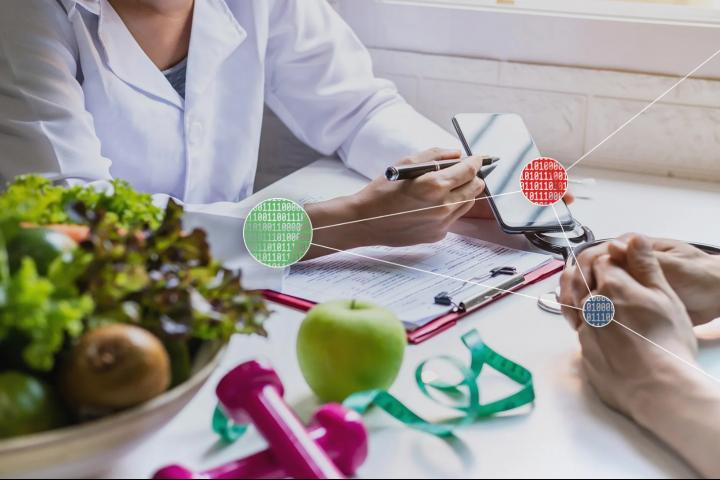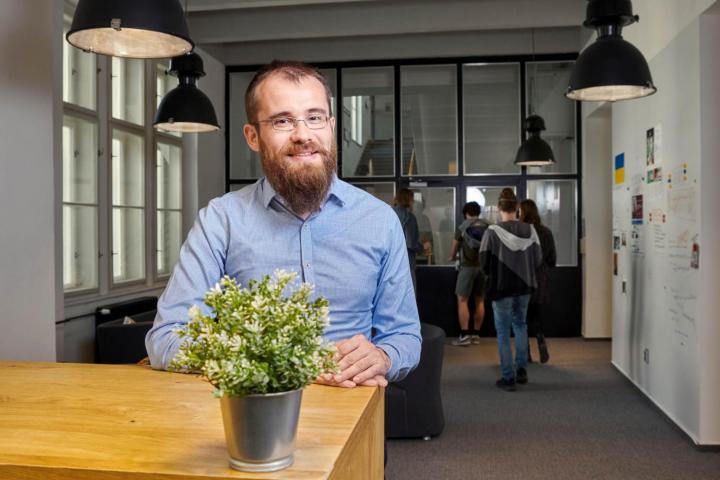Unhealthy diets are associated with metabolic changes and increased risk of serious non-communicable diseases. According to the World Health Organisation, these diseases kill 41 million people each year, equivalent to 74% of all deaths worldwide. However, we still know very little about the specific dietary mechanisms that actually cause the diseases. Moreover, current tools used to collect dietary information rely on users themselves to enter information, which can be unreliable. Existing research also lacks data on vulnerable groups such as people from lower socio-economic backgrounds, among whom non-communicable diseases are often over-represented.
The CoDiet project, led by the Spanish research centre AZTI, will address these shortcomings. It aims to develop an AI-based tool that can assess individual risk of diet-related diseases and provide tailored nutritional advice. "It is well known that everyone's metabolic response to the same diet varies. CoDiet will work to personalise dietary advice instead of a one-size-fits-all approach," said research leader Dr Itziar Tueros of AZTI, adding that it took a multidisciplinary team, one that CoDiet prides itself on, to develop such a solution.
One of the main gaps in our knowledge is an accurate understanding of what people consume in their daily lives. Existing tools are very imprecise, making it difficult to understand the relationship between diet and disease. The project will therefore test a smart wearable camera developed at Imperial College London. It is designed to be worn comfortably on the ear and passively record what the wearer consumes. It uses computer vision and deep learning to collect and analyse the data, allowing it to automatically recognise food types and approximate portion sizes. This system will be complemented by other technologies to help understand the body's processing of food, including analysis of the gut microbiome and metabolites in urine.
Jakub Mareček and Vyacheslav Kungurtsev from FEL CTU, together with teams at the Technion Institute of Technology in Israel, the National and Kapodistrian Universities in Athens and Imperial College London, are working on methods for learning causal relationships from data. "Does a particular hormone affect what we crave, or conversely does our diet affect the concentration of a particular hormone? This is a question we are looking for an adequate answer to in terms of algorithms. Machine learning revealing causality is a big open problem in both statistics and artificial intelligence, and our new optimization-based methods are designed to help solve it," explained Dr. Mareček. Scientists at FEL CTU are pleased that the modern optimization methods they are developing can help solve fundamental societal problems.
The project requires collaboration of experts in a number of fields and will collect data in several European countries. A total of seventeen institutions from ten countries will be involved. The public health, epidemiology and nutrition surveillance authorities, including the European Food Safety Authority, Istituto Superiore di Sanita (Italy), Teagasc - Agricultural and Food Development Authority (Ireland), Sciensano (Belgium) and the Institute of Health Development (Estonia), will provide the terms of the assigment. Analytical chemistry, genomics and microbiotics methods are supplied by Bruker Biospin (Germany), Microcaya (Spain), Aristotle University of Thessaloniki (Greece), University of Trento (Italy), University of Leicester (UK), and Consorcio Centro de Investigación Biomédica en Red (CIBER) (Spain). In addition to the CTU FEL, AI methods are also being developed by Imperial College London (UK), the Technion Institute of Technology (Israel), and the National and Kapodistrian Universities of Athens (Greece). A cluster of Spanish institutions (CIC bioGUNE, University of Valencia and AZTI) play a key role in the integration.
Photographic illustrations can be found here.

